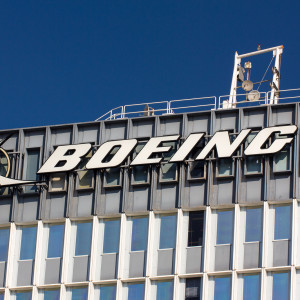Mixed signals from the Trump administration’s “America First” initiative are creating a confusing economic environment for U.S. companies despite a booming U.S. economy, which could make the “America First” and “Made in America” initiatives unattainable for American business.
President Trump says he wants more U.S. corporations to move production and supply chains back to the U.S., but his recent trade policy decisions are incentivizing some to seek out non-U.S. resources. Harley-Davidson and Polaris, for example, say they’re planning to move some production to other countries due to aggressive tit-for-tat tariffs between the U.S. and some of its major trading partners.
Against this controversial backdrop, the two biggest federal contractors — U.S. companies Boeing and Lockheed Martin — are competing to provide the trainer jet for the United States Air Force (USAF) Advanced Pilot Training program. Whichever contractor USAF chooses could say much about the credibility and viability of Trump’s “Made in America” push.
Lockheed Martin plans to partner with South Korean contractor Korea Aerospace Industries (KAI) in its USAF bid, which means only Boeing — planning to partner with Saab USA — will provide a trainer jet that is entirely American-made (even though Saab is a subsidiary of a Swedish company).
Lockheed Martin and KAI’s trainer jet is the updated T-50A, which is based on a 20-year-old South Korean design and will begin production in South Korea if the team wins the contract, according to the GSA Business Report. Final assembly will be completed at Lockheed Martin’s plant in Greenville, South Carolina after arriving via container ship through the Port of Charleston.
The report also said Lockheed Martin officials claim 60 to 75 percent of the jet will be manufactured in the U.S., and will hire more than 200 employees to the Greenville plant to assemble the jet if they win the contract.
Furthermore, officials told the GSA Business Report they do not intend for the T-50A to be entirely made in America, by Americans.
By contrast, Boeing claims 90 percent of its T-X jet for the competition is American-made and will manufacture major parts in Dallas, Texas with final assembly in St. Louis, Missouri to create a total of 2,750 new American jobs.
Further complicating the competition is the issue of national security: while neither South Korea nor South Korean companies have been targeted by Republicans as national security threats, recent Congressional actions against Chinese telecom companies like Huawei Technologies and ZTE Corp. — whose phones were banned on military bases — may cause the current administration to be more hesitant about relying on foreign suppliers for a defense contract.
While Boeing may seem like an obvious choice if the USAF decides to pursue a stricter interpretation of the “America First” initiative, the Lockheed Martin-KAI jet may be cheaper.
According to the Korea Herald, Lockheed Martin pressured KAI to cut production costs of the updated T-50A to make their joint bid to USAF more attractive.
Offering a cheaper jet may provide Lockheed Martin with the edge it needs to beat out Boeing, which has said numerous times over the past several months that Trump’s tariffs — especially the steel tariffs — could squeeze profit margins and increase supply chain costs.
Although Boeing still isn’t sure how the tariffs will affect operations (as it’s too soon to measure any real impact), its pessimistic outlook could hamper its chances at winning the USAF bid, especially if Boeing raises its prices in anticipation of potential negative impacts from tariffs.
But because Boeing plans to manufacture more of its trainer jets in the U.S., it may face fewer supply chain delays and see more supply chain savings than Lockheed Martin as U.S. trade relationships become more strained and U.S. ports — including the Port of Charleston — struggle to handle a huge boom in shipping volumes.
Despite an uncertain global economic stage, both companies are financially very healthy and likely to withstand most setbacks fairly well over the next year, which means Lockheed Martin’s choice to outsource so much of its jet likely isn’t a necessary move to save profit margins but a strategic one to increase them.
Neither of the top two competitors for the USAF trainer jet will produce a 100 percent American-made aircraft, but Trump’s recent trade policies aren’t exactly encouraging either of them to pursue a 100 percent American-made production plan. Still, if USAF chooses Boeing for the contract, Trump may treat the decision as a win for “Made in America” and “America First” policies.

